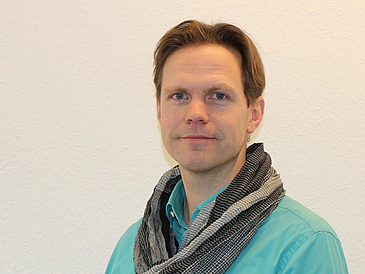The SPeADy study, which is short for “Study of Personality Architecture and Dynamics”, is being led by Professor Christian Kandler. In the study, twins and their relatives; parents, partners, and children, are interviewed with regards to their characteristics, attitudes, and experiences. Based on the twin family study, the scientists were able to prove that the family similarities in terms of personality forms are nearly entirely dependent on the shared genes, both within and between generations.
Honest or Humble?
“Whether one is honest and humble or dishonest and excessive, emotionally unstable or stable, extroverted or introverted, helpful or self-centered, reliable or unreliable, open or intolerant, is less dependent on shared experiences than we assumed,” says Professor Christian Kandler. Surroundings and experiences shared by family relatives appear to have no influence on family similarities in terms of temperament and character. The “honest-humble” characteristic is, however, an exception. Around a third of the similarities between family relatives regarding honest behavior and material aspirations stem from their shared environment, for example culture, religion, or the shared living space.
Parents Offer Opportunities for Development
However, the circumstance that the family environment is shown as being insignificant in the study does not mean that it has no effect on personality. The findings only show that the family environment does not influence the similarities between siblings. Firstly, it could be the case that the objectively shared family world, such as the parenting style, may be subjectively experienced in a different manner by siblings. Secondly, it is thinkable that the parental influence on children is connected in an inseparable way to the genes shared by the parents and children. For example, the open nature of the parents may be mirrored in the diversity of the literature at home or in the type of activities undertaken. In this way, parents do not only pass their genetic material onto their children but also form the experiences of their children based on shared systems. “It can be said that parents offer their children opportunities for development of their character,” states the psychology professor.
Twins Can Aid Research
“In order to investigate the paths, the possibilities, and the influences of this personality development, it is important that the character development of twins be researched over a longer period,” emphasizes the researcher. Therefore, the Personality Psychology and Psychological Assessment research group invites all interest twins over the age of 14 to participate in the SPeADy twin family study. The workload – a 30-minute online or paper questionnaire, is relatively low in comparison to the profit. The participants will receive a scientifically founded personality profile and a universal 10-euro voucher. And they, of course, contribute anonymously to new research findings.
Further Information:
The study:
https://econtent.hogrefe.com/doi/10.1027/2151-2604/a000378
Contact:
Prof. Dr. Christian Kandler
Professor of Personality Psychology and Psychological Assessment
Department of Psychology
University of Bremen
Phone: +49 421 218 68770
Email: ckandler@uni-bremen.de

